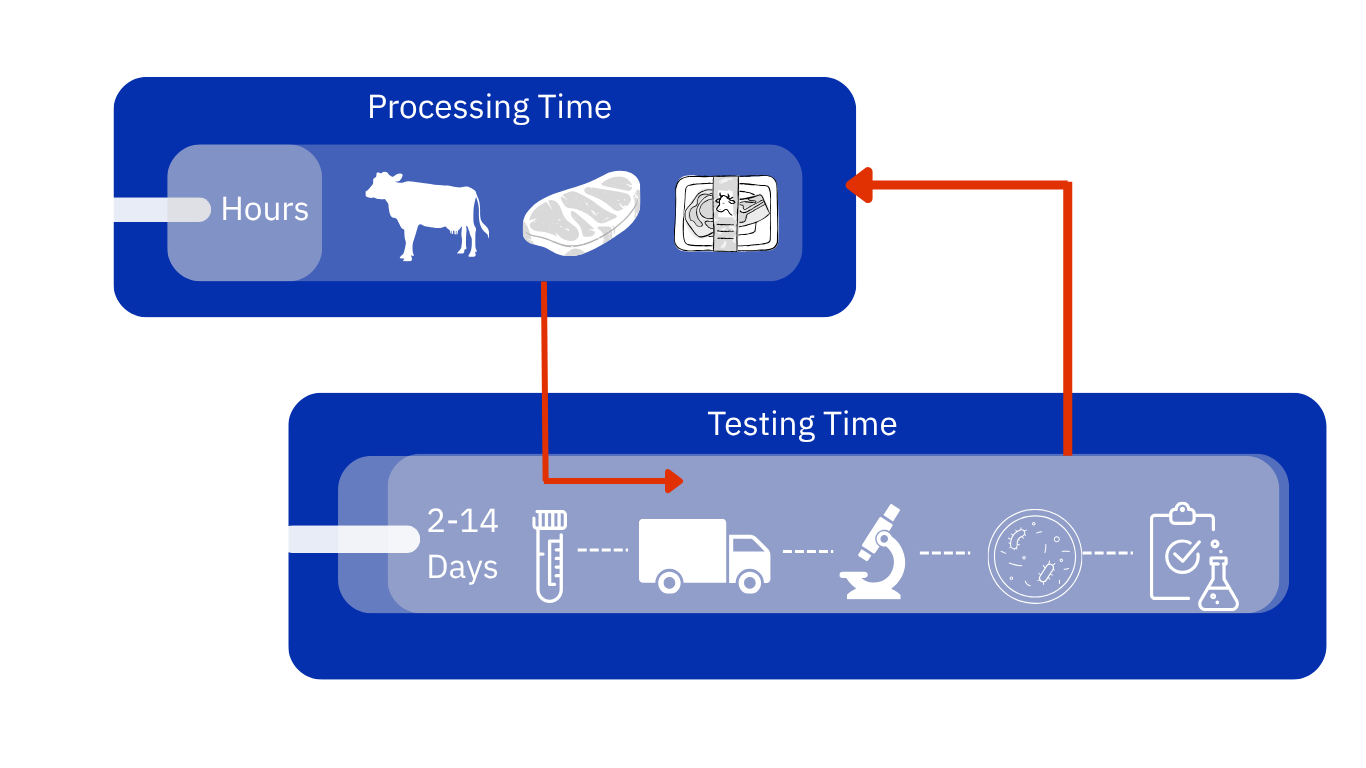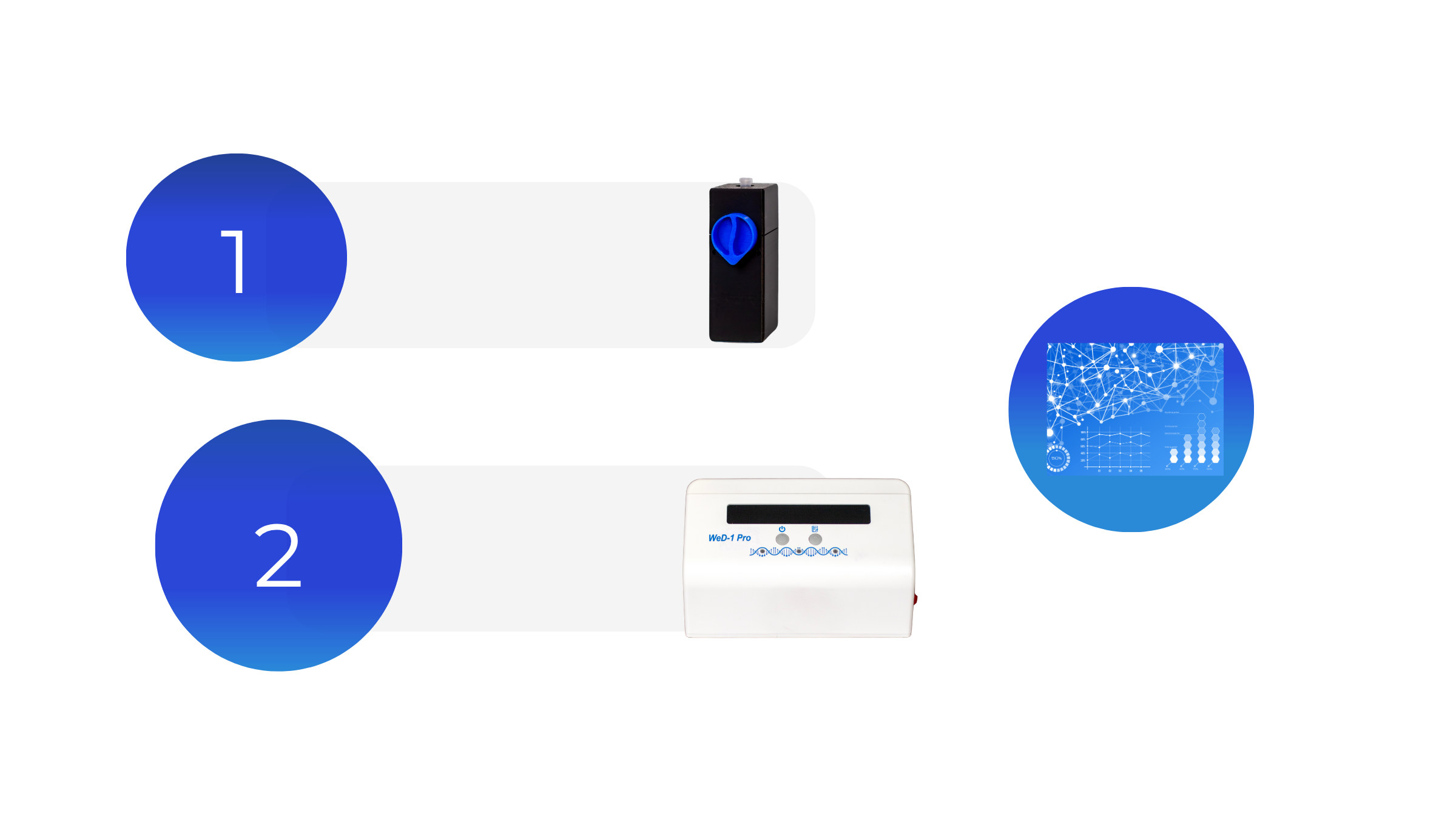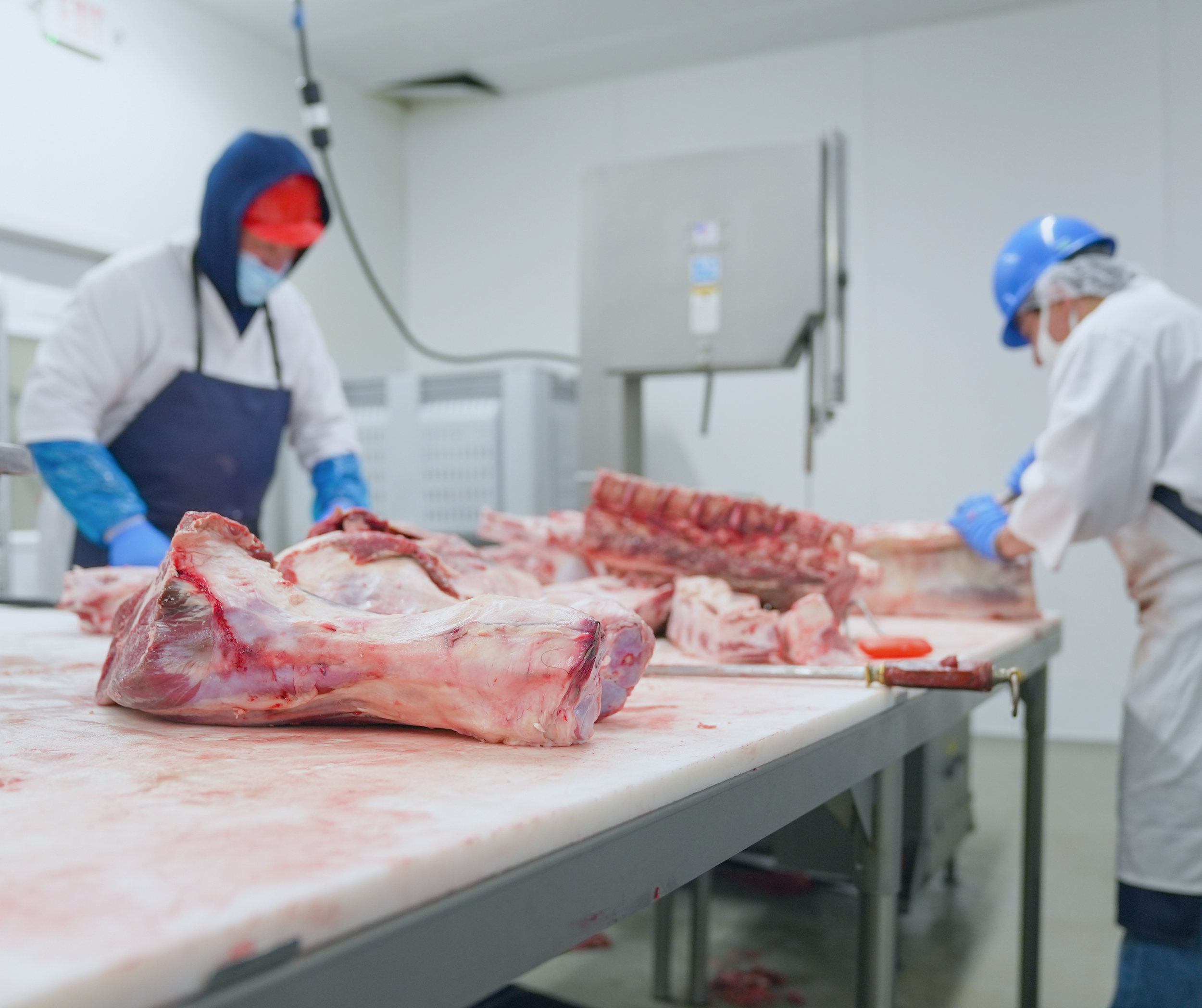
Because of food contamination, every year in the world
600M
people fall ill
420,000
people die
$100B
in economic losses
The Testing Dilemma—
Food processing is done in hours.
2 hours
Food testing requires days, because samples must be sent to a central lab for analysis.
Hypercell’s answer:
A simple, accurate, on-premise, micro-test that provides results in less than 1 hour with the precision of lab-based technologies.
✔ Simple: 2-step process
✔ Rapid: results in less than 1 hour
✔ Accurate: highest level of accuracy
✔ Connected: SaaS platform
We’ve spent time in processing plants and with food safety teams, learning what features are most important in a test.
COMPROMISE
With current testing methods, you must choose between speed and accuracy.
NO COMPROMISE
With Hypercell, you can have both: speed and accuracy in a simple, easy to perform micro-test.
Food processors have said what they want in a diagnostic, by order of importance:
Rapid result turnaround time (TAT)
Ease of use
Accreditation or validation
Price
It’s a simple 2-step process
Capture
Detect
Results
That takes less than 30 minutes
What People Are Saying
“Hypercell checks all the boxes to drive industry-wide adoption .... Their technology provides results in minutes instead of hours or days in real world settings, and is easy enough for anyone to use.”
— Excerpt from IndieBio “Why We Invested”
Featured In
Awards
Accelerator Programs
SOSV IndieBio
2024
Plug & Play
2024
FoodBytes
2022















